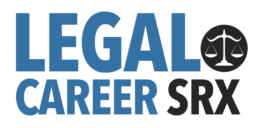Filing for bankruptcy is an option if you are struggling to make your monthly payments or if your debts have become a major stress in your life. It is important to think about how you can discharge the majority of your debts if you are considering filing Chapter 13 bankruptcy or Chapter 7. You may have questions about the bankruptcy process and what it will mean for your life. We have some information to help you understand what happens after bankruptcy is over and how you can move forward with your life.
Once Your Debts Are Paid
You can get rid of a lot of your qualifying debts through bankruptcy. You can get rid of items like your backed utility bills and personal loans. Your Chapter 7 bankruptcy case will likely be closed and you will be exempt from any debts based upon your agreement. You will need to agree to a repayment plan before a bankruptcy court can issue you a discharge. After all qualifying debts have been paid under the payment agreement, your discharge will be issued. Your creditor will not be able to collect these debts in the future after you have received your discharge.
What Will Happen To Your Credit After Bankruptcy?
Although bankruptcy can negatively impact your credit score, it will not cause you to lose your financial stability for the rest of your life. People are often hesitant about filing bankruptcy as they worry that they might not be eligible for future credit products.
Bankruptcy can help you get rid of late payments and eliminate the burden of your debt. You can also eliminate a high debt-to-income ratio, which will help your credit rating rise. You may notice a substantial improvement in your credit score over the next few months or years, depending on how you manage your finances.
How To Manage Your Finances Wisely
You can improve your credit score by making sure you pay your bills on time and managing your finances well after bankruptcy. Your credit score could be significantly raised if you have a discharge. Nearly 30% of your overall score will be affected by your debt to credit rating.
How To Access Financial Products And Credit In The Future
Although it can be difficult to acquire new financial products or new lines of credit following a Chapter 13 bankruptcy, there are some tools you can use. It may be necessary to apply for a secured card first or select a higher interest rate on future credit products. Your credit score will rise if you have a solid repayment record on any new credit products. To achieve financial stability, you need to be careful with your spending and pay all your bills on time. Although it may take some time to master financial products, if you are consistent and build your credit score, you will eventually be able to return to regular credit and low-interest loans.
Are You Considering Filing For Bankruptcy?
You don’t have to file for bankruptcy to harm your credit score. It can be beneficial to file for bankruptcy if you feel overwhelmed by your debts. Contact us today if you need assistance with your personal bankruptcy case. We can help you keep your home and determine the best way to file bankruptcy to preserve your credit rating.
Our team includes highly qualified bankruptcy lawyers who can help you navigate the bankruptcy process. Working with our team can help you to have complete control over your finances and predict your future. Contact us today to schedule a free consultation about your bankruptcy options.
We will be happy to tell you more about filing, the steps involved, the best way to file, and what your options are. We want you to be prepared for the bankruptcy filing process.
This post was written by Trey Wright, a lawyer with extensive experience in business bankruptcy chapter 11 in Pensacola! Trey is one of the founding partners of Bruner Wright, P.A. Attorneys at Law, which specializes in areas related to bankruptcy law, estate planning, and business litigation.
The information provided on this website does not, and is not intended to, constitute legal advice; instead, all information, content, and materials available on this site are for general informational purposes only. Information on this website may not constitute the most up-to-date legal or other information. This website contains links to other third-party websites. Such links are only for the convenience of the reader, user or browser; the ABA and its members do not recommend or endorse the contents of the third-party sites.





